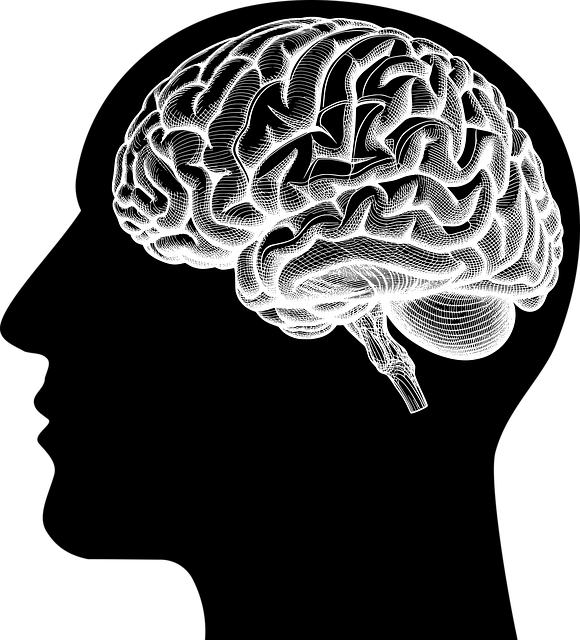Therapy for young adults with adjustment disorder requires a specialized approach addressing emotional intensity and life changes. Mental health professionals guide clients through coping strategies, stress reduction, and emotional intelligence development. Effective risk management plans, including self-care, crisis protocols, and mental health education, protect both therapists and clients. Safety strategies based on comprehensive risk assessment foster secure environments and build trust. Continuous monitoring, evaluation, and advocacy for policies prioritize prevention and holistic care.
“Mental health professionals play a vital role in treating young adults with adjustment disorder, but managing associated risks is essential for safe and effective therapy. This article navigates the critical aspects of risk management planning, focusing on young adults with this common yet complex condition. We explore identifying specific risks in mental health practice, from behavioral cues to potential self-harm. Learn about developing tailored risk management strategies, implementing safety protocols, and continuously monitoring progress to ensure optimal patient outcomes in therapy for young adults with adjustment disorder.”
- Understanding Therapy for Young Adults with Adjustment Disorder
- Identifying Risks in Mental Health Practice
- Developing a Comprehensive Risk Management Plan
- Implementing Safety Strategies in Clinical Settings
- Continuous Monitoring and Evaluation for Effective Risk Mitigation
Understanding Therapy for Young Adults with Adjustment Disorder

Therapy for young adults with Adjustment Disorder is a specialized field that requires a nuanced understanding of this specific mental health challenge. This disorder often manifests as severe emotional reactions to life changes or stressful events, impacting a young person’s ability to function in daily life. Mental health professionals play a pivotal role in helping these individuals navigate their symptoms and develop coping mechanisms.
Effective therapy involves creating a safe space for clients to express their feelings and work through underlying issues. Resilience-building techniques are essential tools in the arsenal of mental wellness coaching programs, fostering an individual’s ability to adapt and cope with challenges. By integrating evidence-based practices and tailoring them to each young adult’s unique needs, therapists can enhance mental health awareness and support positive growth.
Identifying Risks in Mental Health Practice

Mental health professionals constantly navigate a complex landscape of risks that can impact their well-being and effectiveness in treating clients. Identifying these risks is the first crucial step in any risk management plan. In the therapeutic setting, various factors contribute to potential hazards, particularly when working with young adults struggling with adjustment disorders or other mental health challenges. These may include heavy caseloads, high-stress client cases, and emotional intensity within the therapy room.
Effective risk identification involves recognizing not only external stressors but also internal factors like burnout, which can significantly impact a therapist’s ability to provide quality care. This is where strategies such as stress reduction methods and cultivating emotional intelligence come into play. By integrating these practices into their professional routine, mental health professionals can better manage client expectations, set boundaries, and prevent burnout—essential components of a robust risk management plan tailored for the unique challenges of therapy for young adults with adjustment disorders.
Developing a Comprehensive Risk Management Plan

Effective risk management planning is essential for mental health professionals to ensure a safe and supportive environment for their clients. A comprehensive risk management plan should be tailored to address the unique challenges faced by therapists working with young adults struggling with adjustment disorders. This involves identifying potential risks, such as self-harm or suicide ideation, and implementing proactive strategies. One crucial aspect is establishing clear protocols for crisis intervention, including access to emergency services and on-site support personnel.
Additionally, fostering a culture of positive thinking and mental health education within the practice can mitigate risks. Regularly reviewing and updating risk assessment tools, integrating self-care routine development into treatment plans, and promoting open communication channels with clients are integral components of this process. By implementing such measures, therapy for young adults with adjustment disorders becomes more effective, ensuring their well-being and fostering a positive therapeutic outcome.
Implementing Safety Strategies in Clinical Settings

Implementing Safety Strategies in Clinical Settings plays a pivotal role in ensuring the well-being of both mental health professionals and their young adult clients struggling with adjustment disorders. These strategies, grounded in rigorous risk assessment for mental health professionals, are designed to foster a safe and supportive environment. By integrating positive thinking and resilience building into therapy sessions, practitioners can mitigate potential risks and promote healthier outcomes.
Clinical settings should adopt policies that encourage open communication, clear boundaries, and effective de-escalation techniques. These measures not only help in managing crises but also build trust between therapists and clients, particularly those dealing with adjustment disorders. Regular staff training on risk assessment tools and crisis intervention techniques is essential to maintain a proactive approach, ensuring that mental health professionals are equipped to handle diverse client needs effectively.
Continuous Monitoring and Evaluation for Effective Risk Mitigation

In the dynamic field of mental health care, particularly when catering to young adults dealing with adjustment disorders, continuous monitoring and evaluation are paramount for effective risk management. This proactive approach involves regular assessment of patients’ progress, treatment responses, and emerging risks, ensuring that interventions remain tailored to their evolving needs. By integrating this strategy into risk management planning, therapy for young adults with adjustment disorders becomes more nuanced and impactful, fostering a supportive environment that promotes mental wellness and enhances emotional intelligence.
Mental health professionals play a pivotal role in this continuous cycle by advocating for both patients and the broader mental health policy landscape. Through meticulous monitoring, they can identify early warning signs of potential risks, such as escalated symptoms or lifestyle changes, enabling timely interventions. This, in turn, not only benefits individual patients but contributes to valuable Mental Health Policy Analysis and Advocacy, shaping practices that prioritize prevention and holistic care for young adults navigating adjustment disorders.
Mental health professionals play a vital role in supporting young adults with adjustment disorder, but it’s crucial to have robust risk management planning in place. By understanding the specific risks associated with this population and developing comprehensive strategies, such as identifying potential triggers, implementing safety protocols, and continuously monitoring progress, professionals can ensure safer and more effective therapy. This approach not only protects both clients and practitioners but also fosters successful outcomes for young adults navigating adjustment disorder.








